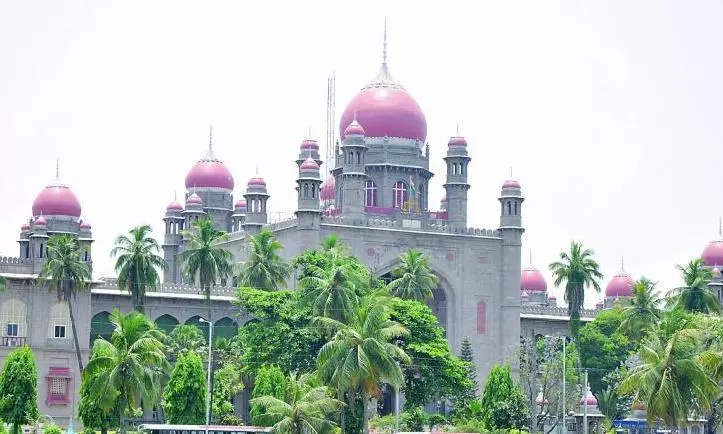HC Calls for Early End To Probe: 2015 Encounter

Hyderabad: A two-judge panel of the Telangana High Court on Friday closed a PIL directing the state police to conclude investigation into the alleged encounter of Tangella Shruti (23) and Vidyasagar Reddy (32) on September 15, 2015, within six months following the guidelines on encounter cases in PUCL v. State of Maharashtra. The panel, comprising Chief Justice Alok Aradhe and Justice J. Anil Kumar, was dealing with a PIL filed by the Civil Liberties Committee [CLC], represented by its office-bearer Chilaka Chandrasekhar, challenging the action of Pasra police station, Warangal, and others in allegedly encountering victims and not registering crime pursuant to complaint of the family of the said deceased under Section 302 IPC and other relevant provisions of law against the officers involved in the killings of the said deceased. The deceased, Shruti, an engineering graduate from Hyderabad and Vidyasagar Reddy, a car driver, who both were alleged to be the underground cadre of CPI (Maoist), were killed by the police in an alleged fake encounter. It was informed to the court that it was the first encounter at Rangapuram forest, Warangal, after the formation of the state of Telangana. The petitioner complained that the state government had failed to comply with the guidelines in the encounter case, laid down by the Supreme Court in the PUCL case. Petitioner’s counsel, Rizwan Akther contended that no investigation was being made into the death of Shruti and Vidyasagar. The officers involved have not been arrayed as accused in compliance with PUCL guidelines. On the other hand, the additional advocate general, Imran Khan contended that there was complete compliance with the said guidelines. On the conclusion of investigation, if the officers are found responsible, a departmental enquiry would be initiated against them as per law, the additional AG argued.
The panel left it to the family of the victims to place before the appropriate authorities all the relevant factors pointing to a fake encounter and for the police to act thereafter in accordance with law. The panel further directed the concerned investigation officer to take into consideration any information or evidence that may be provided by the family members of the deceased. They also observed that as the investigation was incomplete despite the time gap, it directed a time-bound conclusion of the investigation.
HC sets aside order withdrawing building permission
Justice T. Vinod Kumar of the Telangana High Court set aside an order of municipal authorities of Nizampet withdrawing a building permission granted earlier. More importantly, the court ruled that after the initial period of 21 days such powers vests only with the commissioner. The judge was dealing with a writ petition filed by CH. Sharath Kumar, a resident of Nizampet, questioning a revocation order for being bereft of any reason and contrary to law. The counsel for the petitioner E. Venakata Sidhartha pointed out that the revocation order did not specify the date of the show cause notice or the alleged reply to the same. In fact, he said there was neither a show cause nor a reply. He pointed out that the authority went by the remarks of the section and recorded satisfaction for revocation that Siddhartha said was wholly contrary to law and it made mockery of the rights of a citizen to be heard on the basis of the show cause notice. The judge accordingly set aside the order.
HC Suspends ECI Order To Remove Staff
Justice Pulla Karthik of the Telangana High Court on Friday suspended an order of the Election Commission of India suspending some employees for attending an election-related BRS meeting.
The judge was dealing with a writ plea filed by Srinivas and others challenging a notice issued by the district election officer (DEO) and Siddipet collector. It was alleged that the BRS had conducted a meeting unauthorisedly in violation of the model code of conduct in connection with general elections at the Reddy Function Hall, Siddipet, which some of DRDA staff attended.
Overall, 106 Indira Kranti Pathakam employees had been suspended by the DEO.
The petitioner said the DEO was neither the appointing authority nor the disciplinary authority in respect of the petitioners. Therefore, he had no power or authority to place the petitioners under suspension by invoking Sections 129 and 134 of the Representation of Peoples Act, 1951 or/and conduct of Civil Servants, 1964, senior counsel G. Vidya Sagar argued.
He also argued that the conduct of Rules of Civil Servants, 1964 were adopted by Telangana state, which were applicable to a person who was a member of civil services of the state or works in a civil post in the state or in connection with the affairs of the state. The petitioners were not civil servants and did not come under the provisions of the Rules.

